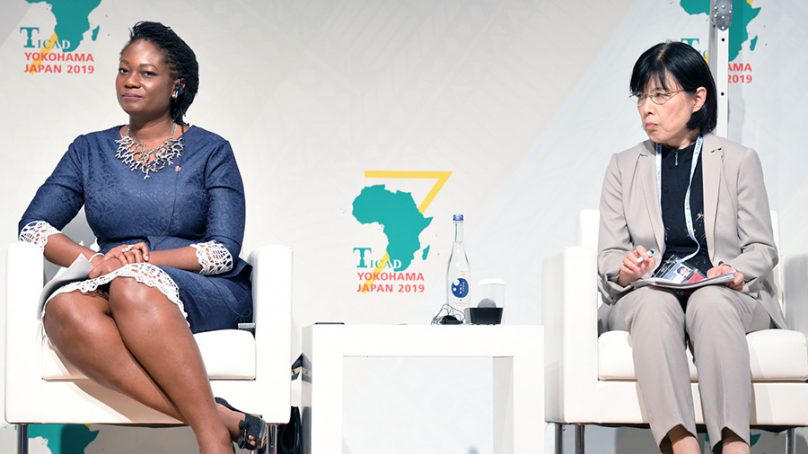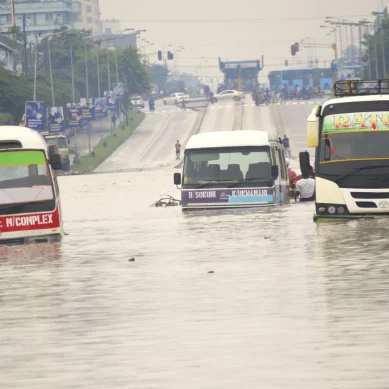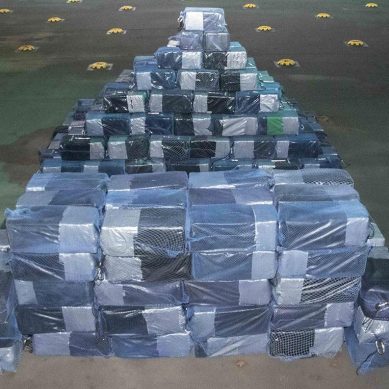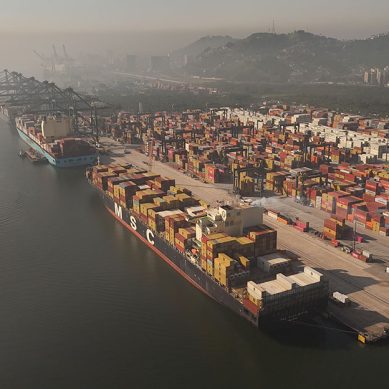
African countries are gearing up for the Eighth Tokyo International Conference on Development (Ticad), commonly known as the Japan-Africa Forum, in Tunisia on August 27-28, with peace and security topping.
As expected, Russian invasion of Ukraine and the attendant spinoff effect that has affected world economies will a topic of intense interest during the conference.
Nearly 50 African leaders are expected to attend, along with over 200 African civil society and NGO representatives, 108 heads of regional and international agencies, and 120 leaders of trade, industry, and technology innovation – making it one of the biggest hybrid diplomatic events in Africa since Covid.
Ticad is also Asia’s leading investor in African peace and security with an annual portfolio of over $350 million.
Co-hosted with the United Nations, the United Nations Development Programme, the World Bank and the African Union Commission, Ticad is distinctive for its multilateral and multisectoral emphasis.
Efforts to advance the Sustainable Development Goals in Africa are explicitly linked to peacebuilding, constitutional development, justice system reform and democratic governance.
Ticad responds to African priorities on the basis of ownership – jinminshoyū – a core principle of Japanese partnership. Rather than just a series of triennial summits, Ticad represents a process of ongoing engagement.
During its 30 years of existence, Japan has trained thousands of Africa’s engineers, entrepreneurs, and educators. Many Africans call Ticad a model mechanism for international cooperation and security cooperation.
To capture the unique aspects of the Ticad dialogue, we reached out to nearly a dozen African and Japanese specialists who have contributed to Ticad over the years for their insights and experiences.
Ticad started in 1993, making it the oldest forum of its kind. Its multilateral co-partnerships, called Hōkatsu-tekina in Japanese (“all encompassing”), distinguishes Ticad from the Forum for China-Africa Cooperation (FOCAC), which “hardly involves other multilateral actors,” says Hannah Ryder, a former Kenyan and British diplomat who advises African countries on partnership with Southeast Asian nations.
Ticad also includes civil society, NGOs, and professional bodies based on merit (Ataisuru or “to be worth”) not through vetting by ruling parties as is the case with China’s FOCAC. Denis Matanda, who advises the Common Market for East and Southern Africa (Comesa) on international strategy, says this enhances popular engagement and ownership.
Ticad underscores Japanese solidarity with Africa. According to the late Japanese Prime Minister Shinzo Abe, “In the 1990’s when much of the international community had forgotten Africa, Japan believed in Africa, and launched Ticad.”
Indeed, in the lead up to Ticad, many Africans are mourning Abe, one of its key architects. They have eulogised him as an “ally,” “brother,” and “special friend and partner” who had a “special love and affection for Africa.”
At Ticad Seven in 2019, Abe pledged to incentivise the Japanese private sector to invest $20 billion in Africa, for infrastructure and human resources – a target Japan has largely achieved.
Ticad is also part of a postwar Japanese foreign policy that seeks to cultivate a new Japanese international identity of peace, outlined in the Preamble of Japan’s Constitution, which states, “We desire to occupy an honoured place in an international society striving for peace, and the banishment of tyranny and slavery, oppression and intolerance for all time from the earth.”
Ambassador Erastus Mwencha, the former Deputy Chairperson of the African Union Commission, observes that “Ticad underscores Japan’s peaceful intentions, gives Africa an alternative, and convinces us that we matter to Japan and our issues would not be ignored internationally.”
Ambassador Mwencha worked with seven Japanese prime ministers and was decorated with Japan’s highest honour, the Order of the Rising Sun, for his efforts.
There are several benefits for Japan: to advance Japanese soft power, development models and technologies, gain market share, marshal African diplomatic support in international forums, and build new security alliances for Japan.
Ticad meets triennially on rotation between Japan and Africa. It is more than a regular summit, though, as the summits are part of an ongoing process of engagements and initiatives. Ticad meetings often feel like the World Economic Forum, where government, business and civil society leaders participate on an equal basis. Each Ticad round sets priorities and implementation plans for the next three years.
The Ticad Unit within the UNDP headquarters in New York provides technical support for the day-to-day implementation at national and regional levels in between conferences. Japanese and African civil societies participate at all levels through bodies like the Africa Japan Association, Japan-Africa Business Forum, and Japan-Africa Public Private Forum hosted by the UN Industrial Development Organization. This mirrors the Japanese practice of ringi-sho, which loosely translated as “bottom-up – where proposals are discussed widely before endorsement.
“Japan’s programmes are built around four elements: social inclusion, youth strengthening and capacity building, human security and ownership, and institutional and policy reforms, including elections.”
Ticad focuses on three pillars: society, economy, and peace and stability through human security. Its sectoral areas align with African strategic priorities like the African Peer Review Mechanism and Agenda 2063.
In the area of peace and security, Ticad has worked with the African Union over the past 20 years to provide financing and technical assistance to eight peacekeeping training centres of excellence, deployed Japan Self Defence Force (JSDF) training teams to eight African peacekeeping troop contributing countries, trained over 5,000 judicial officers to assist with justice and rule of law reform in 54 countries, and sent JSDF advisors to support African troops in non-combat roles in peace missions in Somalia, Mali, Sudan and South Sudan.
Democratic governance is a crucial piece of the Ticad engagement model. According Ticad’s “New Approach to Peace and Security in Africa” African conflicts are rooted in the manner in which political power is exercised, which for the most part is arbitrary and highly personalized.
This governance structure prevents independent institutions from performing their constitutional functions. It also results in the political, economic, and social exclusion of large sections of the population – especially women and young people, who constitute the majority.
Japan’s programs, thus, are built around four elements: social inclusion, youth strengthening and capacity building, human security and ownership, and institutional and policy reforms, including elections.
- An Africa Centre for Strategic Studies report











